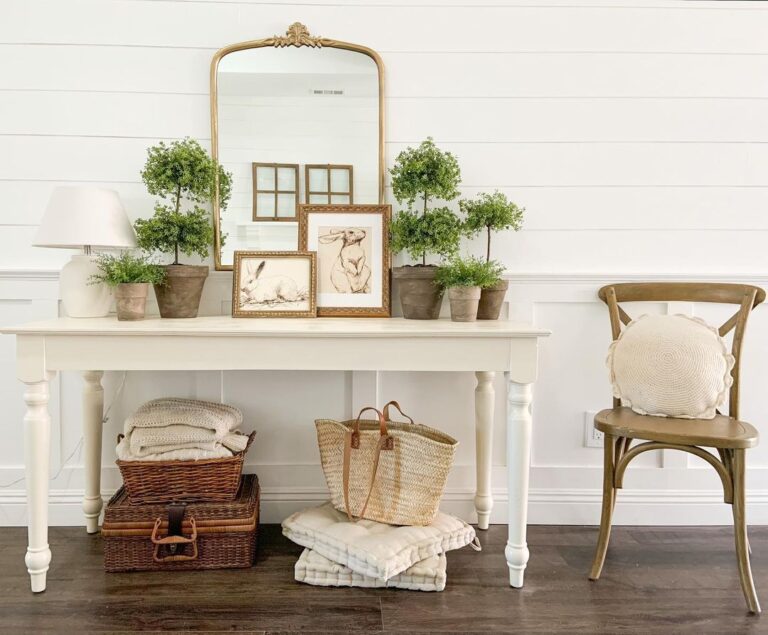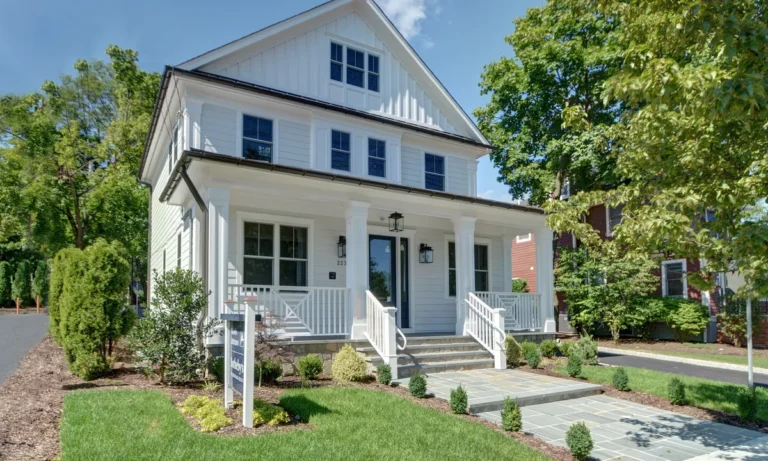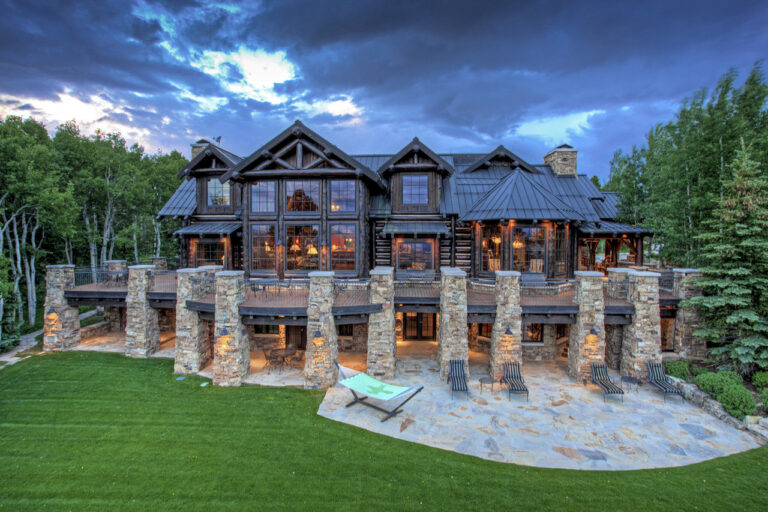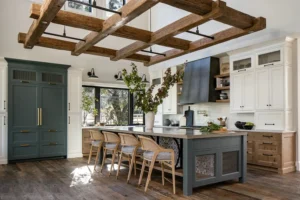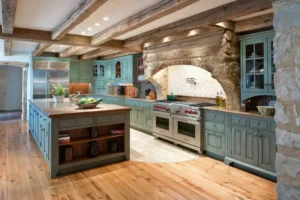On a warm, breezy morning, Sophia stands on the deck of her new home, feeling the gentle sway beneath her feet as she sips her coffee. The seagulls cry overhead, and the sun reflects off the water, casting shimmering patterns on the ceiling. This is not your typical house—Sophia lives in a vessel home, a fully-equipped floating residence anchored along the riverbank of her favorite city. Sophia dreamt of living by the water for years, but the high cost of waterfront real estate made it impossible—until she discovered the vessel home trend. Today, Sophia is one of thousands who have embraced this sustainable, affordable, and flexible approach to living. Vessel home ,or repurposed shipping containers and houseboats, offer a novel solution to the housing crisis, allowing people to live closer to nature without compromising on modern comforts.
Outline and Key Points
- What Are Vessel Homes?
- Explanation of vessel homes: the types (floating homes, houseboats, repurposed shipping containers, etc.).
- Brief history and evolution of vessel homes as an affordable housing solution.
- Why Vessel Homes Are Gaining Popularity
- Affordability: Rising housing costs have made traditional home ownership difficult.
- Mobility and Flexibility: Unlike conventional homes, vessel homes offer the ability to relocate.
- Sustainability: Many vessel homes are built with eco-friendly materials and rely on renewable energy sources.
- Statistics on the Growing Interest in Vessel Homes
- According to the National Marine Manufacturers Association, there has been a 20% increase in houseboat sales over the past five years.
- A 2022 survey by Realtor.com revealed that 12% of first-time homebuyers are open to alternative housing options like vessel homes due to affordability concerns.
- Statista reports that the global market for repurposed shipping containers in housing is expected to grow by 6.5% annually.
- Vessel Homes as a Solution to the Housing Crisis
- How vessel homes address overcrowding and limited land Availability in urban areas.
- Case studies of cities that have encouraged floating home communities to increase affordable housing.
- Challenges and Considerations
- Licensing, zoning, and other legal aspects involved in owning a vessel home.
- Practical issues: weather conditions, maintenance, and utilities.
- Personal story: A profile of someone who faced challenges while transitioning to vessel living.
- Future of Vessel Homes
- Projections for growth and technological advancements.
- Potential for vessel homes to influence the real estate market, urban planning, and environmental policy.
Expanded Article Content with Citations
1. What Are Vessel Homes?
Vessel homes come in different forms, including traditional houseboats, floating homes, and shipping container conversions placed on land or floating docks. The concept of living in a vessel has existed for centuries, but it has recently gained attention as an innovative solution to the modern housing crisis. Initially, vessel homes were popular in regions with dense urban populations and limited real estate space, such as Amsterdam and Seattle. However, the trend has spread worldwide as people seek affordable, sustainable, and unique alternatives to traditional housing.
2. Why Vessel Homes Are Gaining Popularity
- Affordability: Housing prices in major urban centers continue to soar. According to the Urban Institute, nearly 37% of American households are “cost-burdened,” meaning they spend more than 30% of their income on housing. Vessel homes provide a lower-cost alternative, with some tiny floating homes available for as little as $150,000—significantly less than the average price of a traditional house in a city.
- Mobility and Flexibility: Unlike a fixed home, vessel homes offer the flexibility to change locations. For example, people who live on houseboats can move to different marinas, allowing them to experience new areas without moving their belongings. As New Atlas notes, this mobility has attracted digital nomads and freelancers who enjoy the freedom of movement.
- Sustainability: Many vessel homes are constructed from repurposed materials, such as shipping containers, which would otherwise end up in landfills. Floating homes often utilize solar power and rainwater collection systems, reducing their environmental footprint. According to Green Building Council data, homes built with eco-friendly designs can reduce energy costs by up to 30%, a trend homeowners have fully embraced.
3. Statistics on the Growing Interest in Vessel Homes
Vessel homes have seen a steady rise in interest over the last decade. The National Marine Manufacturers Association (NMMA) reported a 20% increase in houseboat sales in the United States from 2018 to 2023, indicating a growing demand. Additionally, a 2022 Realtor.com survey revealed that 12% of prospective first-time homebuyers are open to alternative housing options like floating homes and shipping container homes as they struggle to afford traditional properties.
The trend is global. Statista projects that the global market for shipping container homes will grow by an annual rate of 6.5% over the next five years. This interest is driven by affordability, the eco-friendly nature of reusing materials, and these homes’ flexibility.
4. Vessel Homes as a Solution to the Housing Crisis
With cities worldwide grappling with limited land Availability and rising populations, vessel homes present a compelling alternative. In places like Seattle, WA, and Vancouver, BC, city councils have encouraged the development of floating home communities as part of their affordable housing initiatives. These projects often involve a mix of private and subsidized homes on the water, providing options for lower-income residents.
In Europe, Amsterdam has led the way with neighborhoods like Schoonschip, a sustainable, floating village that provides housing while minimizing environmental impact. According to Schoonschip Amsterdam’s official website, their floating homes produce 30% less CO2 than conventional buildings, showcasing how vessel homes can contribute to greener urban living.
5. Challenges and Considerations
While vessel homes have many benefits, they are not without challenges. Regulatory issues can be complex; licensing requirements for floating homes and houseboats vary widely between jurisdictions. According to Houseboat Magazine, some U.S. states classify houseboats as recreational vehicles, while others treat them as permanent residences, leading to different tax and zoning implications.
Maintenance and weather resilience are also critical considerations. Living on water means dealing with moisture, which can lead to mold and corrosion if not managed carefully. Furthermore, vessel homes may be vulnerable to storms or flooding. Despite these challenges, many vessel homeowners find the lifestyle rewarding, particularly those who value a close connection to nature and a minimalist approach to living.
6. Future of Vessel Homes
The future of vessel homes looks promising as interest continues to grow. Experts predict that advances in sustainable technologies—such as floating solar panels and modular construction—will make vessel homes even more attractive and practical. As demand increases, more companies are entering the market, offering customized floating homes with modern amenities.
According to Future Market Insights, the global floating homes market is projected to grow steadily over the next decade, spurred by housing shortages, environmental concerns, and evolving lifestyles. Some urban planners also believe that floating neighborhoods could become a more mainstream solution for coastal cities as climate change raises sea levels.
Conclusion
Vessel home offer an exciting alternative to traditional housing by combining affordability, mobility, and sustainability. While they are not without their challenges, their benefits make them an attractive option for those looking to live differently. Whether anchored in a bustling marina or a quiet bay, vessel home represent a unique intersection of innovation and necessity in today’s housing market. With the growing interest in alternative housing solutions, vessel home may soon be a common sight in waterside communities worldwide.


